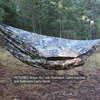New to the Forum?
Tell us a bit about yourself so we can welcome you to the Virtual Roundtable
1248 topics in this forum
-
- 2 replies
- 1.3k views
-
- 2 replies
- 1.4k views
-
- 16 replies
- 3.4k views
-
- 27 replies
- 5.6k views
-
- 7 replies
- 1.8k views
-
- 5 replies
- 2k views
-
- 6 replies
- 1.9k views
-
- 13 replies
- 2.5k views
-
- 1 reply
- 1.3k views
-
- 1 reply
- 1.3k views
-
- 2 replies
- 1.3k views
-
- 6 replies
- 1.7k views
-
- 2 replies
- 1.5k views
-
- 5 replies
- 1.4k views
-
- 1 reply
- 1.4k views












